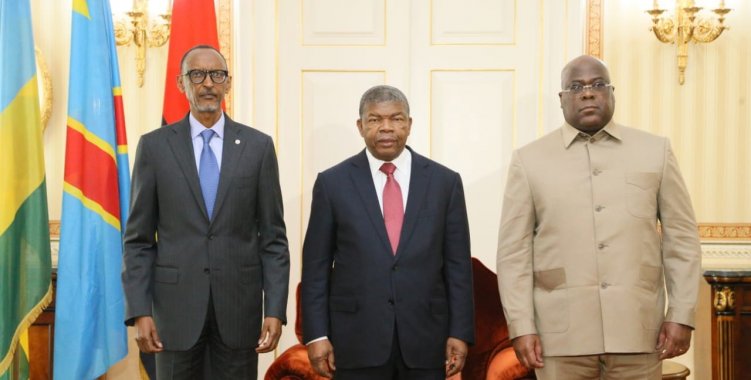According to a statement from the presidency, in addition to João Lourenço, mediator appointed by the African Union, the summit will feature the participation of the heads of state of Rwanda, Paul Kagame, and DRCongo, Félix Tshisekedi.
Last week, DRCongo and Rwanda reached an agreement on a plan to dismantle the rebel group Democratic Forces for the Liberation of Rwanda (FDLR), founded by Rwandan Hutus exiled after the genocide.
The plan was approved by representatives of the Ministries of Foreign Affairs of both countries after a meeting in Luanda, which mediates the conflict, reported the Okapi radio station.
This is a fundamental step on the path to peace in eastern DRCongo, where dozens of rebel groups operate, as the end of the FDLR is a demand of the Rwandan Government, which collaborates with the March 23 Movement (M23), which is in conflict with the regular Congolese army.
Although Rwandan authorities deny Kigali's alleged collaboration with the M23, this fact has been confirmed by the UN.
In turn, Rwanda and M23 accuse the Congolese army of cooperating with the FDLR rebels, founded in 2000 by leaders of the 1994 genocide and other Rwandans (Hutus) exiled in DRCongo to regain political power in their country, a collaboration also confirmed by the UN.
On July 30, the delegations of DRCongo and Rwanda signed in Luanda a ceasefire agreement between the Armed Forces of DRCongo (FARDC) and the M23, which came into force in the early hours of August 4 and was violated on several occasions.
M23's armed activity was reactivated in 2022 after years of relative calm, and since then the group has advanced on several fronts to position itself near the city of Goma, on the shores of Lake Kivu, which it occupied for ten days in 2012.
Since 1998, eastern DRCongo has been mired in conflict fueled by rebel militias and the army, despite the presence of the UN peacekeeping mission in the country.







